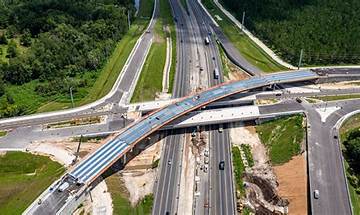Get the most comprehensive typhoon defense self-help guide

Typhoon is a disastrous weather system with strong destructive power, which will seriously affect our daily life and even threaten people's life safety when crossing the border. Because typhoons are generated at sea and affect coastal and even inland areas when landing, the defense of typhoon meteorological disasters is also the most complicated. People in different industries have different measures to deal with typhoons. Let's take a look.
Residents avoid going out when the typhoon comes.
Prepare materials at home
Typhoon is a low-pressure vortex that occurs on the tropical or subtropical ocean surface. It is a powerful and deep tropical weather system, often accompanied by strong winds, heavy rains and storm surges, causing serious disasters in China's coastal areas. So, what preparations do residents need to make before the typhoon comes? How to avoid danger when a typhoon comes?
Before the typhoon comes, residents should listen to, watch or access the typhoon warning information in time to understand the government's countermeasures against Taiwan; Then close the doors and windows, and turn off computers, televisions and other electronic equipment; Reserve food and water, and prepare emergency items such as mobile power supply and flashlight; Check whether the circuit, fire, gas and other facilities are safe; Residents living in all kinds of dilapidated houses, factories and sheds should be moved to safety in time; If you are already in a solid house, you should stick a "meter" pattern on the window glass with adhesive tape to prevent the window glass from breaking.
When the typhoon comes, you should continue to pay attention to the dynamic information of the typhoon. It is best not to go out. If you are outside, don't take shelter from the wind and rain near temporary buildings, billboards, iron towers and trees. If you are driving, you should immediately drive to the underground parking lot or shelter; If you live in a tent, you should immediately put away your tent and take shelter from the wind in a solid house; If you are on the water (such as swimming), you should immediately go ashore to take shelter from the wind and rain.
Fishermen need to return to Hong Kong as soon as possible to avoid the wind.
If you cannot return to Hong Kong, you should immediately send a distress signal.
Before the typhoon comes, fishing boats (including small fishing boats) should return to Hong Kong as soon as possible or take shelter from the wind to the nearest port, and take measures to prevent fishing boats from colliding; Fishermen in high-risk places such as beaches, ships, downstream reservoirs and waterlogged areas need to evacuate as soon as possible; Strengthen the safety inspection of fishery facilities and equipment to ensure the normal operation of machinery and equipment; Strengthen the inspection and consolidation of anti-escape facilities such as river crabs and soft-shelled turtles; In addition, make emergency preparations for the collapse of dams and ponds caused by heavy rains, and for the outbreak of aquaculture products and diseases after typhoons.
Offshore operators should avoid navigation when encountering typhoon.
Stay away from the typhoon center
Before the typhoon comes, offshore operators should go to the shelter immediately, and in case they can't escape or encounter a typhoon, they should contact the relevant departments on the shore in time for rescue. When waiting for rescue, you should take the initiative to take emergency measures and take measures to leave the typhoon quickly and decisively, such as stopping (stagnation), bypassing (detour) and crossing (rapid crossing); The calm wind and waves shortly after the strong typhoon may be the calm when the typhoon eye passes. At this time, offshore operators must not go back to reinforce the ship in order to protect their property.
In addition, when conditions permit, modern equipment such as beacon, radio communication machine and satellite phone are equipped on the ship; When there is no radio communication equipment, when a passing ship or plane is found, or when it is close to land, you can use objects to send out easy-to-detect distress signals in time, such as piling up the word "SOS", setting off fireworks, sending out light signals and sound signals, shaking brightly colored objects, etc.
How to avoid navigation when encountering a typhoon? When a ship sailing at sea encounters a typhoon, in order to avoid being involved in the typhoon center or the storm area around the center, the method of avoiding navigation is generally adopted. The ship can lose no time to change its course and speed according to the dynamics and intensity of the typhoon, so as to keep a certain distance from the center of the typhoon, which is beyond the gale range of the wind level that the ship can resist, and adopt appropriate navigation methods to stay away from the center of the typhoon as soon as possible.
Farmers need to dredge ditches before the typhoon comes
Grab the ripe crops
After the news of the typhoon was released, farmers' friends made early preparations for places that might be hit by typhoons and floods, and took timely measures to prevent and avoid disasters. For field crops, it is necessary to dredge ditches and open field drains to ensure smooth drainage and irrigation; Sufficient agricultural materials for disaster relief; Organize timely harvesting of mature field crops such as rice, corn, soybeans, melons and vegetables; Repair and strengthen production facilities such as greenhouses, and organize the evacuation of field workers in time.
After the typhoon, post-disaster disposal is also very important. According to different crops, the measures taken are different. Such as rice, remember to dredge ditches, ensure smooth drainage and irrigation, wash leaf mud, apply fertilizer in time, spray drugs in time, and prevent pests and diseases; For lodging dry grain crops, the plants should be raised before new roots are formed, and the soil should be cultivated and fertilized at the same time, so that the new roots can be quickly planted.
Source: China Weather Network
Declaration: All article resources on this website, unless otherwise specified or labeled, are collected from online resources. If the content on this website infringes on the legitimate rights and interests of the original author, you can contact this website to delete it.






